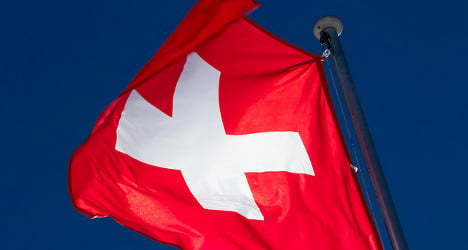Figures from the Swiss immigration office show that the number of naturalizations rose by around 20 percent in 2015, with 40,588 people in Switzerland becoming Swiss citizens, up from 32,988 in 2014.
The rise reverses a recent trend, as naturalizations had been in steady decline from 2006 to 2014.
The nationalities most inclined to get a Swiss passport in 2015 were Italians (5,477 in 2015), Germans (5,212), Portuguese (3,614) and French (2,583).
Just 614 Brits and 390 Americans living in Switzerland took Swiss nationality in 2015.
Speaking to newspaper Le Temps, Etienne Piguet, geography professor at the University of Neuchatel, said the rise in naturalizations could be attributed to the uncertainty surrounding the status of EU citizens in Switzerland.
One contributing factor is the February 2014 vote in favour of the SVP initiative to restrict the number of immigrants to Switzerland.
The revision of the law on asylum, due to come into force in 2017, which introduces further conditions on obtaining Swiss nationality, could also be a factor.
“For holders of a residence permit, the possible end of free movement agreements with the EU following the events of 9 February 2014 could mean the loss of certain rights, such as the right to return to Switzerland after a stay abroad,” he said.
An increasing number of young people are also seeking naturalization, said the paper.
In Lausanne, 436 young students put in a request for ‘simplified’ naturalization (a process available to foreign spouses or children of Swiss citizens, as opposed to ‘regular’ naturalization), up from 252 in 2014, said Sylviane Rochat of the city’s naturalization office.
Some 68 requests have already been submitted so far in 2016, she added.
Zurich, meanwhile, saw a 40 percent rise in requests for information about the naturalization process during January 2016, Claudia Grando, head of communications for the city, told Le Temps.
And in Bern, around 65 people a week come to the information office to find out about naturalization, compared with an average of 50 a week in the same period last year, said spokesperson Alice Späh.
Obtaining citizenship in Switzerland can cost in excess of three thousand Swiss francs, takes around three years, and involves interviews at the federal, cantonal and commune level.



 Please whitelist us to continue reading.
Please whitelist us to continue reading.
Member comments